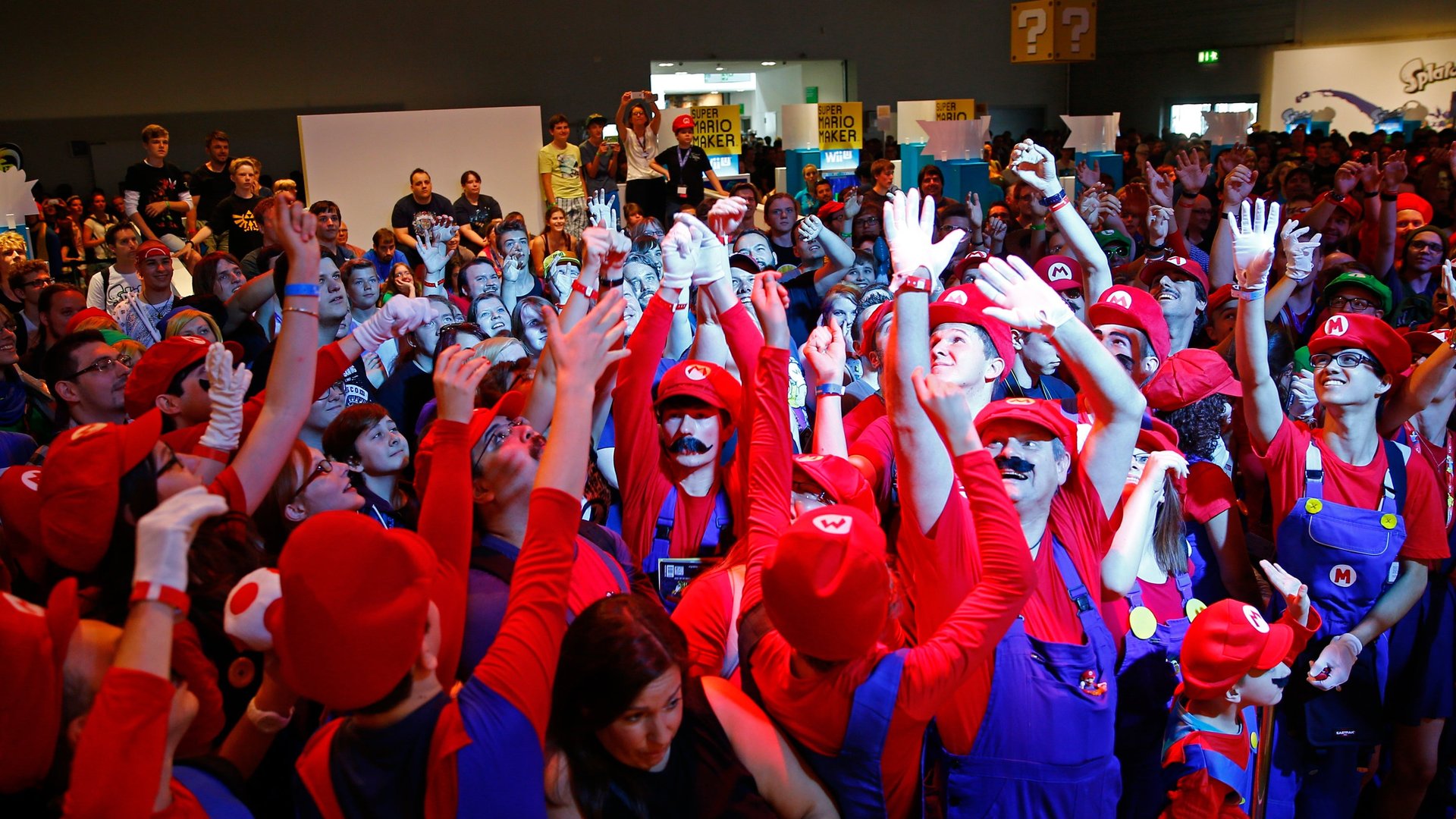Nintendo’s next major games console finally has a release date
The next big thing for Nintendo is just around the corner. The company announced, as part of its quarterly earnings statement earlier today, that its next-generation games console, which it has been referring to as the “Nintendo NX” will be released globally in March of 2017.


The next big thing for Nintendo is just around the corner. The company announced, as part of its quarterly earnings statement earlier today, that its next-generation games console, which it has been referring to as the “Nintendo NX” will be released globally in March of 2017.
Rather than the pomp and circumstance that tends to accompany most large tech companies’ major product releases, the new gadget got just a few mentions in an earnings release—which, as the Verge points out, is Nintendo’s style. There wasn’t much information about the console itself, and rumors have abounded that it could be some hybrid home console and mobile gaming system, potentially even based on Google’s Android operating system. Nintendo had the following to say about the console in its release:
For our dedicated video game platform business, Nintendo is currently developing a gaming platform codenamed “NX” which is a brand-new concept, and our unique software-led hardware-software integrated business will continue to constitute the core business for Nintendo. For the purpose of maximizing the population that interacts with Nintendo IP, we have entered into the smart device gaming business.
It’s not entirely clear what a “smart device” means in this instance, though it does sound as if Nintendo aims to build some sort of internet-of-things device as part of the NX.
That wouldn’t be out of character. The company currently sells a range of figurines that can communicate with its Wii U console and Nintendo 3DS handheld systems, called amiibo, that allow players to add new characters or other benefits into their games. It’s not a stretch to think that these figurines would be compatible with the NX, or that there might be some new internet-connected method of interacting with the console. Nintendo is, after all, the company that popularized the wireless motion-sensing controller with the Wii, and has produced such zany controllers as the Power Glove and the Donkey Kong bongos.
Nintendo’s home console sales have dried up in recent years, as the Wii U has not been as popular as its predecessor, the Wii. The follow-up sold only about 13 million units since its launch, compared to the Wii’s 101 million units.
Nintendo has also been criticized for being slow to adapt to mobile gaming: When the Wii was released in 2006, there were no smartphones to play games on, whereas now a large swath of the casual gaming market that Nintendo once dominated appears to be gaming on mobile. Nintendo has started releasing some mobile games, including the exceedingly bizarre Miitomo, but perhaps a new gaming system that players can take with them when they’re out of their living rooms will be what the company needs.